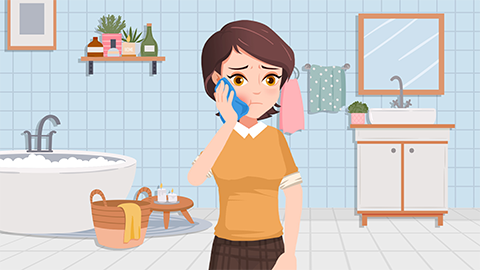What should I do if my face is swollen from being hit?
After facial swelling due to being hit, prompt measures should be taken to reduce swelling and relieve pain. Generally, the following methods can help: cold compresses to alleviate swelling, avoiding pressure or irritation, keeping the head elevated, maintaining a light diet, and monitoring symptom changes. Specific details are as follows:

1. Cold compress to reduce swelling: Within the first 48 hours after injury, apply an ice pack wrapped in a towel or a cold damp cloth to the swollen area for 15 to 20 minutes at a time, repeating every 1 to 2 hours. Low temperature helps constrict blood vessels, reducing bleeding and fluid leakage, effectively alleviating swelling and pain.
2. Avoid pressing or irritation: Do not rub or press on the swollen area, and avoid applying ointments or skincare products randomly. Physical stimulation may worsen subcutaneous tissue damage, increase the risk of bleeding, and potentially lead to skin infection, delaying recovery.
3. Keep the head elevated: When resting or sleeping, slightly elevate the head above heart level. This position promotes facial blood return, reduces blood accumulation in the swollen area, accelerates swelling reduction, and relieves local fullness and pain.
4. Maintain a light diet: Avoid spicy, irritating, or excessively hot foods to minimize stimulation to the swollen area. Consume more fresh fruits and vegetables rich in vitamins, and increase intake of protein and other nutrients to support tissue repair.
5. Monitor symptom changes: Closely observe the extent of swelling, pain intensity, and any new abnormalities. Keep track of whether the swelling is spreading, if there is any skin breakage, or if vision is affected, as this information will guide further management.
If swelling persists beyond 48 hours without improvement, switch to warm compresses to promote blood circulation. Seek immediate medical attention if severe pain, skin lacerations, blurred vision, dizziness, vomiting, or other serious symptoms occur. During recovery, keep the face clean, avoid re-injury from external impacts, and follow medical advice for proper care.





